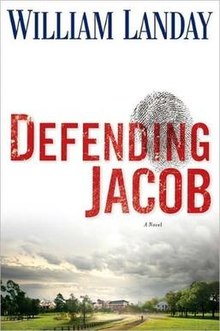Blurbos Rating (4)
Highlights
That is the Prosecutor’s Fallacy—They are bad guys because I am prosecuting them—and Logiudice was not the first to be fooled by it, so I forgave him for being righteous.
<Defending Jacob>(Landay, William) Highlight on page 4 | Location 95-96 2020-07-05 15:36:53
Never mind how weak your case is. Stick to the system. Play the game the same way it’s been played the last five-hundred-odd years, use the same gutter tactic that has always governed cross-examination—lure, trap, fuck.
<Defending Jacob>(Landay, William) Highlight on page 5 | Location 116-118 2020-07-05 15:38:56
Studies have shown that fathers of murdered children often die within a few years of the murder, often of heart failure. Really, they die of grief. At some point a prosecutor realizes he cannot survive that kind of heartbreak either. He cannot follow the fathers down. So he focuses instead on the technical aspects of the job. He turns it into a craft like any other. The trick is to keep the suffering at a distance.
<Defending Jacob>(Landay, William) Highlight on page 14 | Location 239-242 2020-07-05 15:46:02
A single word or gesture, a tone of voice can conjure up so many remembrances.
<Defending Jacob>(Landay, William) Highlight on page 26 | Location 427-428 2020-07-05 15:57:52
A good marriage drags a long tail of memory behind it. A single word or gesture, a tone of voice can conjure up so many remembrances.
<Defending Jacob>(Landay, William) Highlight on page 26 | Location 427-428 2020-07-05 15:57:58
I felt like I was being toyed with, purposely manipulated. A secret was being kept from me. Jacob and his friends have a slang term, mindfuck, which describes tormenting someone by misleading him, usually by withholding a crucial fact. A girl pretends to like a boy—that is a mindfuck. A movie reveals an essential fact only at the end, which changes or explains everything that went before—The Sixth Sense and The Usual Suspects, for example, are what Jake calls mindfuck movies. The Rifkin case was beginning to feel like a mindfuck.
<Defending Jacob>(Landay, William) Highlight on page 35 | Location 573-577 2020-07-06 02:14:27
He was more outgoing than I, more gregarious and sentimental, but good friendships require complementary personalities, not identical ones.
<Defending Jacob>(Landay, William) Highlight on page 39 | Location 629-630 2020-07-06 02:18:38
He was more outgoing than I, more gregarious and sentimental, but good friendships require complementary personalities, not identical ones. “Tell me you have something or get out of my office.”
<Defending Jacob>(Landay, William) Highlight on page 39 | Location 629-631 2020-07-06 02:18:33
—no one worth knowing can be quite known, no one worth possessing can be quite possessed
<Defending Jacob>(Landay, William) Highlight on page 125 | Location 1943-1944 2020-07-09 00:56:02
After all, it is no harder to paint a wall yellow or blue than white.
<Defending Jacob>(Landay, William) Highlight on page 234 | Location 3525-3526 2020-07-11 00:35:12
Then the difference will be me. I will win even with the weaker case. That was how I saw it. But then, we all tell ourselves stories about ourselves. The money man tells himself that by getting rich he is actually enriching others, the artist tells himself that his creations are things of deathless beauty, the soldier tells himself he is on the side of the angels. Me, I told myself that in court I could make things turn out right—that when I won, justice was served. You can get drunk on such thinking, and in Jacob’s case I was.
<Defending Jacob>(Landay, William) Highlight on page 243 | Location 3636-3640 2020-07-11 00:42:17
You must tell the jury the “story of the case,” the tale that led to the final act. Facts are not enough; you must weave them into a story. The jury must be able to answer the question “What is this case about?” Answer that question for them and you win. Distill the case down to a single phrase for them, a theme, even a single word. Embed that phrase in their minds. Let them take it back into the jury room with them, so that when they open their mouths to discuss the case, your words come tumbling out.
<Defending Jacob>(Landay, William) Highlight on page 268 | Location 3989-3993 2020-07-12 00:42:38
“This defendant—” Do not refer to the defendant by name. Call him only “the defendant.” A name humanizes him, makes the jury see him as a person worthy of sympathy, even mercy.
<Defending Jacob>(Landay, William) Highlight on page 269 | Location 4002-4004 2020-07-12 00:43:16
Every father knows the disconcerting moment when you see your child as a weird, distorted double of yourself. It is as if for a moment your identities overlap. You see an idea, a conception of your boyish inner self, stand right up in front of you, made real and flesh. He is you and not you, familiar and strange. He is you restarted, rewound; at the same time he is as foreign and unknowable as any other person.
<Defending Jacob>(Landay, William) Highlight on page 298 | Location 4433-4436 2020-07-13 00:59:40
We tend not to think about this arithmetic when we look back on our lives. We remember the handful of Big Days and throw away the rest. We organize our long, shapeless lives into tidy little stories, as I am doing here. But our lives are mostly made up of junk, of ordinary, forgettable days, and “The End” is never the end.
<Defending Jacob>(Landay, William) Highlight on page 387 | Location 5726-5728 2020-07-14 02:02:19

Leave a Reply